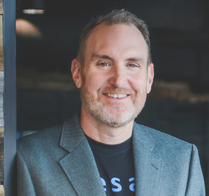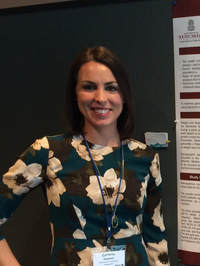Our mission is to improve the health of America's growing urban regions by evaluating, connecting, integrating, and securing independently collected healthcare data
The Problem: Currently most public health data systems rely on data such as births, deaths, census data, collected survey responses, and project specific data focusing on one program or disease. These records are limited because of the time it takes to collect the data, de-identify it and aggregate it for report making. Additionally, seemingly minute differences in data management for similar variables (ex. race vs. ethnicity) as well as differences in data collection, storage, and security can highly inconvenience or prevent data sharing between multiple organizations wishing to learn more about their overlapping target populations. Most urban regions experience this situation of local organizations or partners working to improve community health yet with minimal data-focused communication, governance or sharing. This creates a fragmented data ecosystem that inhibits holistic regional health analysis and evidence-based policy-making.
The Solution: The Community DRIVE project aims to decrease time delays and promote data-focused cooperation between health care partners in order to improve community health in the given urban region. We can achieve this through creating a data governance structure and responsibly integrating and securing the multiple datasets diligently collected and provided by the region's independent health care organizations, from private hospitals to government health centers to medication assistance and emergency response organizations.
The Solution: The Community DRIVE project aims to decrease time delays and promote data-focused cooperation between health care partners in order to improve community health in the given urban region. We can achieve this through creating a data governance structure and responsibly integrating and securing the multiple datasets diligently collected and provided by the region's independent health care organizations, from private hospitals to government health centers to medication assistance and emergency response organizations.
About our Team
|
Mike Dulin, MD, PhD
Mike Dulin, MD, PhD is the Director of the Academy for Population Health Innovation at UNC Charlotte – a collaboration designed to advance community and population health. He is a Professor within the Carolinas Healthcare System’s Department of Family Medicine, directs a primary care practice-based research network (MAPPR), and serves as the Chief Medical Officer for Tresata Health. Dr. Dulin started his career as an Electrical Engineer and Biomedical Engineer and then received his PhD studying mechanisms of learning and memory. Dr. Dulin is a nationally recognized leader in the field of health information technology and application of analytics and outcomes research to improve care delivery and advance population health. He has led projects in this domain funded by AHRQ, The Robert Wood Johnson Foundation, The Duke Endowment, NIH and PCORI. His work has been recognized by the Charlotte Business Journal, NCHICA and Cerner. Finally, Dulin’s work to build a healthcare data and analytics team was featured by the Harvard Business School / Harvard School T.H. Chan School of Public Health as a published case study. |
|
Carlene Mayfield
Carlene is a Doctoral Candidate in Epidemiology at the University of South Carolina. Her educational background reflects a multi-disciplinary approach to understanding health behavior as a complex, bi-directional relationship between an individual and their social structures. She obtained a BS in Psychology (University of North Texas) and a Master’s Degree in Public Health (University of Kansas Medical Center), with a focus in Social and Behavioral Health. The focus of her research is to apply big data applications and related technological innovations to understand the link between social determinants of health and clinical outcomes within public health systems. She is currently working with Dr. Michael Dulin as a project coordinator for the APHI Community Drive. Carlene has expertise in behavioral analytics, program evaluation, and advanced quantitative analysis. Her overarching goal is to demonstrate to health systems and policy makers that investment in addressing community-level social factors has quantifiable benefit for enhancing clinical outcomes (i.e. reduced readmission rates, and improved utilization of health services). |
|
Ari Whiteman
Ari is a doctoral candidate in Geography & Urban Regional Analysis at the University of North Carolina at Charlotte. He is the founder and director of the Urban Mosquito Project, one of the main programs supported by APHI in Charlotte. His research focuses on the intersection of social determinants of health and vector-borne disease, assessing the diverse array of conditions that spurn infectious disease outbreaks in particular communities. Ari is a former Fellow at the Smithsonian Tropical Research Institute and a recipient of the Young Scientist Award by the European Society of Microbiology & Infectious Disease. He has expertise in public health, environmental sustainability, and bio-statistics, and is working as a consultant with APHI on its development of the Community Drive. Ari has a B.A. from Franklin & Marshall College and a M.Sc. from Imperial College London. |
|
Saugat Karki, MD
Educated and trained in India, China and Nepal, Dr. Karki practiced medicine in Nepal before joining the Health Informatics program at UNC Charlotte. He leads the technology team in the project and is responsible for thinking through the Data Governance framework and design. Saugat is interested in transforming healthcare and public health by the means of innovation in technology and data science. |
Summer 2018 Associates:
James Morris, Mike Thuemmel, Mike Sholes, Jack McKenzie, Gabriela Brissette, Tyler Parrish, Daniel Buchenberger, Justine Lyon, Bailey McGinley, Rajani Guditi, Rachel Ramirez, Maya Patel, Brenda Motanez
James Morris, Mike Thuemmel, Mike Sholes, Jack McKenzie, Gabriela Brissette, Tyler Parrish, Daniel Buchenberger, Justine Lyon, Bailey McGinley, Rajani Guditi, Rachel Ramirez, Maya Patel, Brenda Motanez




